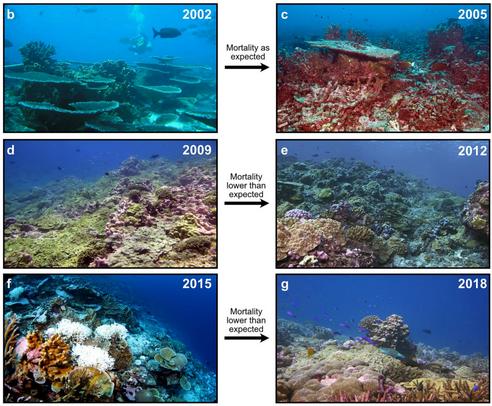
3 minute read
''COVID-19 and Small-Scale Fisheries in Africa""
ecently, a team of researchers funded by the Social Sciences and Humanities Research Council of Canada, explored the emerging impacts of the COVID-19 pandemic on small-scale fishing communities in Cameroon and Liberia. The research studied how exactly the safety measurements affected the entire fish value chain, how it contributed to social anxiety, coral reef transformation, and other negative effects of the pandemic in Africa. The following discoveries would be incredibly important to the ecological society, showing different perspectives of low-developed communities and their impact on ecology and economics.
Nations around the world were affected in numerous ways by the novel coronavirus pandemic.
However, more developed economies, with access to alternative income currents, were
Rable to withstand the crisis more successfully with less harm to dayto-day lives. Unfortunately, we can’t say the same about developing economies in countries such as Liberia and Cameroon, which are highly dependent on natural resources and their processing. One of the most significant contributions to their economies is brought about by small-scale fisheries (SSF). including immigrants from bordering countries. Even with poor licensing and data systems, people working in fisheries contribute a significant amount of money to the country ’s budget. Primarily, fishers use small dugout canoes made of wood and
by Denys Pavlov
Odesa, Ukraine
Together, the Liberian and Cameroonian SSF sector give a workplace to more than 250,000 people,
cont'd >
mounted with motorized engines or oars; also they use several types of fishing gear to target a bigger variety of species.
Gender roles and contributions are also evident in Liberia’s fisheries. Women take part and dominate in fish trade and processing activities, and men engage in harvesting. However, there are frequent issues of post-harvest losses, especially during large harvests and due to lack of infrastructure to support processing and post-harvest fish management.
According to this research study, twenty-nine local fishers and fish buyers were asked to provide a view of the inside of their community. The interviewees shared their thoughts and concerns about COVID-19's influence on their livelihood. Multiple fishers expressed their anxiety about the inability to sell their harvest.
It was also confirmed by women engaged in fish processing who were forced to throw aways massive amounts of product. One fisherman in Cameroon, for example, explained, “ with restricted movements, there was a reduction in sales and catch. ”
On the other side of SSF, fishmongers expressed concern about increasing the price of fish by about 50% since the start of the pandemic. Delays in delivery systems were causing significant destabilization of the fish market and so influenced hotels, restaurants, and small street vendors.
COVID-19 restrictions directly affected inter-city trade causing delivery fees to grow twice. As fishmongers were unable to transport and store fish, they had to sell fish for whatever price simply to avoid major after-harvest loss.

cont'd >
by Denys Pavlov
Odesa, Ukraine
Unwanted adjustments in established work of SFF lead to increased coral bleaching in the area.
In sum, the research team located in Western Africa was able to detect main problems of Liberian and Cameroonian communities during the pandemic and other natural shocks.
Despite severe destruction in the economic sector, both countries have all chances to develop shortterm and long-term resilience as well as to grow in efficiency and GDP over the years.
Making improvements in social unity, infrastructure and jurisdiction may lead to major improvements in SSF, economic conditions, and ecology in general.
Lack of diversification options and overdependence on SSF.
Lack of assets (infrastructure, cooperation, data management)
Weak institutional structure
Absence of monitoring on ecological conditions
Works Cited/Image Credits:
Nyiawung, Richard A., et al. 2022.
"COVID-19 and Small-scale Fisheries in Africa: Impacts on Livelihoods and the Fish Value Chain in Cameroon and Liberia" Marine Policy 141: 105104. doi.org/10.1016/j.marpol.2022.105104
Map and photograph from Nyiawung, et al.
by Denys Pavlov
Odesa, Ukraine







